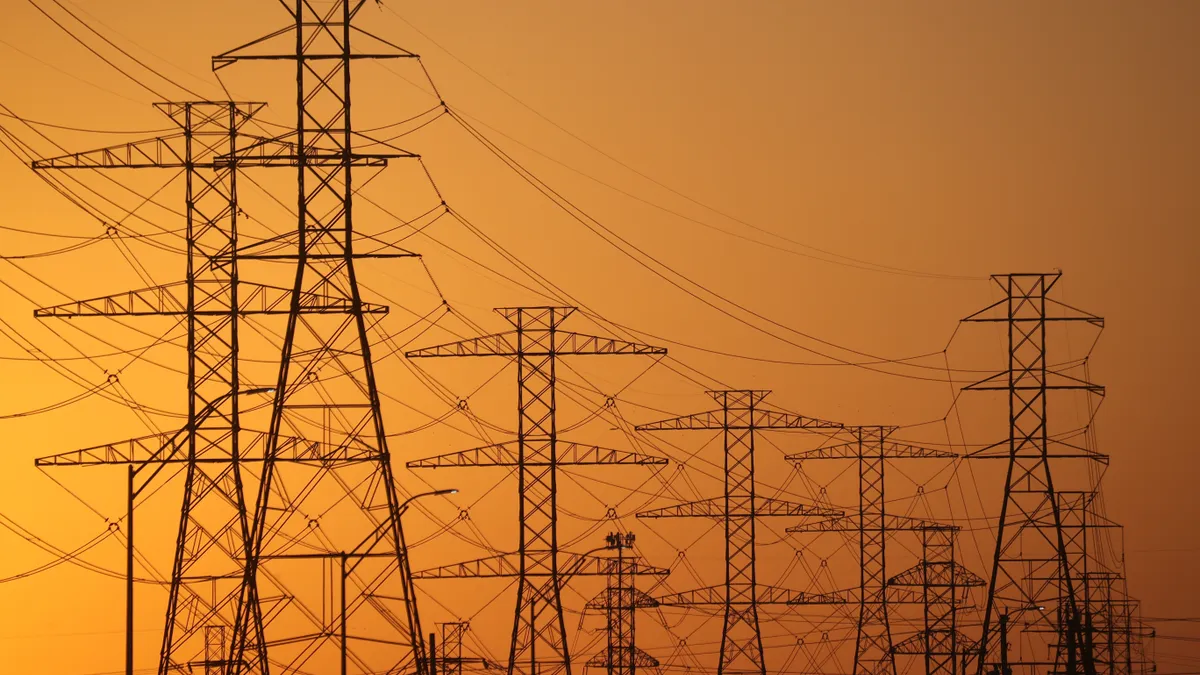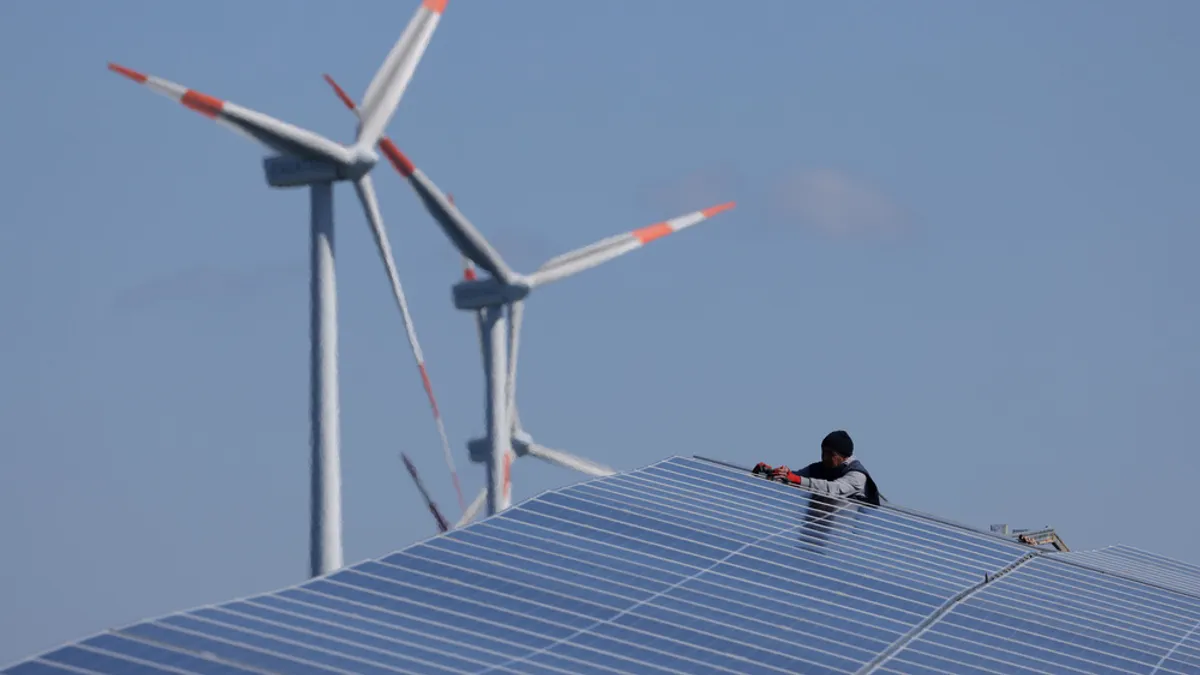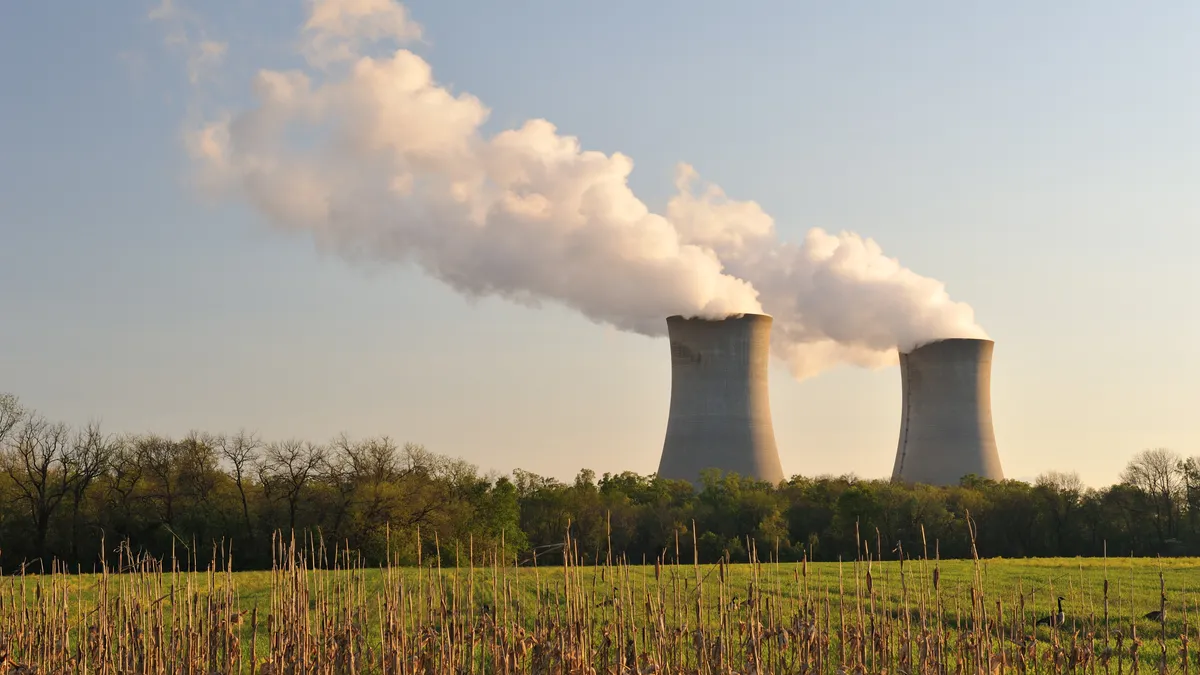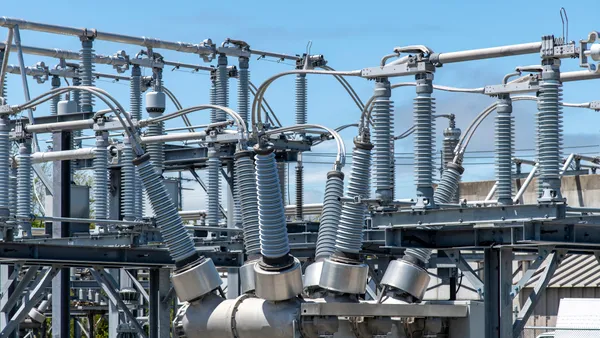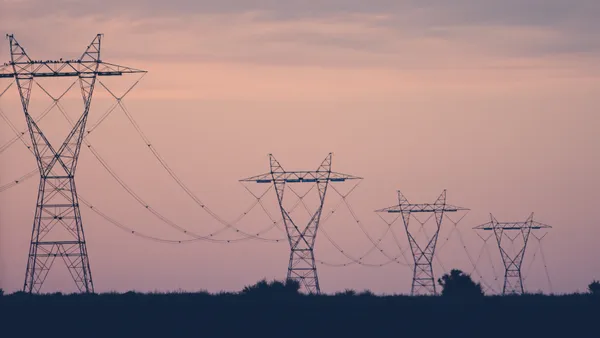Dive Brief:
- The Federal Energy Regulatory Commission’s vote to issue a long-awaited transmission planning and cost allocation reform rule Monday has positive implications for the clean energy sector, industry and other groups say, as most of the resources trapped in interconnection queues around the country are renewables.
- However, as the reforms require transmission planners to consider factors like the changing resource mix over at least 20 years when they develop their plans, the rule is likely to have more of an impact on future renewable energy projects than ones that are currently facing a lack of adequate transmission.
- “A project that's currently stuck in the queue, they might not be breathing a sigh of relief to hear that better 20 year planning is going to start happening over a year from now,” said Caitlin Marquis, managing director at Advanced Energy United. “But certainly, we have been underinvesting in the transmission grid. That is part of the reason why we have these long backlogs in the interconnection queues.”
Dive Insight:
Marquis said that United will be “maintaining focus” on the rule now that it’s been passed, because often “you get a big FERC order, and then everyone forgets about it. And compliance can be just as, if not more, important.”
American Clean Power Association Vice President of Markets and Transmission Carrie Zalewski called the rule “an important milestone” but added that it “cannot be the finish line.”
“If implemented effectively, this will lead to much-needed expansion in transmission capacity on the U.S. grid. At the same time, there are also areas in the rule to build upon, especially with regard to the integration of new resources and enabling more transmission between regions.”
Order 1920 was first proposed in 2022 and faced opposition from Trump appointees who feel it favored renewable energy. A 2022 dissent from Commissioner James Danly, whose term expired at the end of last year, said the rule “suborned” the transmission planning process to support the development of “favored generation resources,” and Commissioner Mark Christie was the dissent in Monday’s 2-1 vote on the rule, calling it a “historic failure” designed to divert money from consumers to renewable energy developers.
“We urge FERC to follow up on this historic order with reforms tackling interregional transmission planning and minimum transfer requirements, but today’s action represents long-awaited progress,” said Evergreen Action’s power sector senior policy lead Charles Harper.
Harper said last year that the group viewed the pending FERC order as “the single most important policy to unlock the benefits of the clean energy transition.”
The rule also requires transmission operators to consider seven economic and reliability benefits when considering transmission projects, including the grid’s ability to handle severe weather events. And in a change from the originally proposed rule, FERC declined to give investor-owned utilities and public power utilities the right of first refusal for jointly built transmission projects.
Marquis called this an “important change” and said the group looked forward to reading the full text of the final rule, which was posted late Monday night and not available at the time of the interview.
“Certainly we'll be reading through that to see what changes were made and where the commission made refinements to the final order,” she said. “We're going to be digging into the order itself, we're going to be evaluating the need for rehearing requests, evaluating others’ rehearing requests and engaging in the compliance process.”
Adam Winer, United’s strategic communications director, said he wants to keep seeing “folks making that connection between the need to get more renewables connected, and the transmission system.”
“And having states, in particular, really understand that their goals – not just in terms of clean energy, but also lowering costs and keeping the lights on – is all connected to this larger transmission system,” he said. “We want to see states ask grid operators, ‘Hey, what are you going to do to make sure that this gets done?’”
“This is very much a beyond the Beltway story,” Winer added. “We think each of these grids is going to have to really grapple with this stuff.”
Correction: This article has been updated to correct a quote from Advanced Energy United's Caitlin Marquis. The company will be evaluating its need for rehearing requests, evaluating others’ rehearing requests and engaging in the compliance process in the wake of the new FERC rule, Marquis said.


